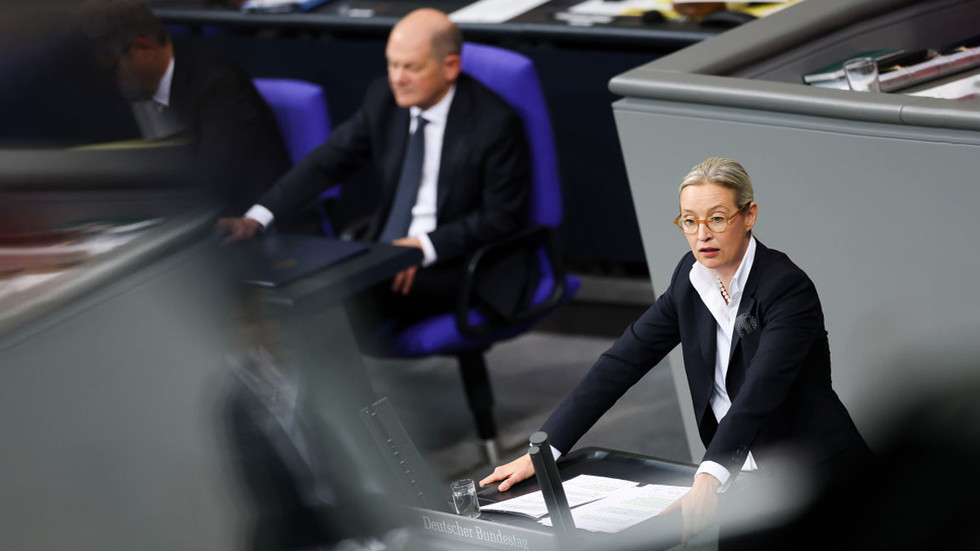Alice Weidel, co-leader of the Alternative for Germany (AfD) party, is currently leading in the race to become Germany’s next chancellor, according to a recent poll by the INSA polling institute published in Bild. The survey reveals that Weidel has garnered the support of 24% of respondents, positioning her ahead of Friedrich Merz from the Christian Democratic Union (CDU), who stands at 20%. In contrast, current Chancellor Olaf Scholz from the Social Democratic Party (SPD) receives 15%, while Green Party leader Robert Habeck is at 14%. This polling data reflects the evolving dynamics of German politics as the AfD gears up for upcoming snap elections scheduled for February 23, where Weidel is slated to be formally confirmed as their candidate.
Weidel’s ascent is significant, especially given the AfD’s growing influence in German politics and the broader European context where right-wing, anti-immigration parties are increasingly gaining ground. The AfD named Weidel as their inaugural chancellor candidate on December 7, demonstrating their ambitions for power. She has been vocal about her criticism of the European Union, particularly pointing fingers at the EU’s impact on Germany’s key automotive industry, proposing the idea of transforming the bloc into a more simplified free-trade zone. This rhetoric aligns with a more nationalist and Eurosceptic ideology that has been resonant among a burgeoning segment of the electorate.
In addition to these political maneuvers, a noteworthy feature of the AfD’s current positioning is its call for Germany to exit the EU and the euro, reminiscent of Brexit, coupled with a proposition for a referendum to facilitate such a disengagement. This notion has increasingly sparked discussions about national sovereignty and economic independence within Germany and across Europe, particularly in light of recent events that have emboldened similar sentiments in other European nations. The AfD’s draft election manifesto reflects these ideas, thereby appealing widely to a voter base feeling disillusioned with the EU’s policies.
Recognizing these trends, the AfD has reported a significant increase in its membership, with numbers climbing by 50% to approximately 50,600. While this uptick is notable, it still represents only 14% of the total membership of Germany’s major political parties, notably the CDU/CSU and SPD. Nonetheless, the rise in support signifies a dramatic shift in the political landscape of Germany, illustrating an increased willingness among the German populace to consider alternative political frameworks that challenge the status quo.
The political landscape in Germany is not an isolated phenomenon but mirrors broader patterns seen throughout the European Union, where right-wing anti-immigration parties are gaining traction. Notable victories have been observed in countries such as Croatia, the Czech Republic, Finland, Hungary, Italy, the Netherlands, and Slovakia. This trend highlights a wider populist response to immigration and globalization, which has transformed political dialogues within these nations, leading voters toward parties that promise to prioritize national interests over EU directives.
As the election approaches, Weidel’s growing support underscores a potential shift in German politics, driven by a frustrated electorate seeking new solutions to economic and social challenges. The AfD, under her leadership, is capitalizing on these sentiments by advocating for significant national reforms which they argue are necessary for reclaiming Germany’s sovereignty and economic stability. How this will unfold in the upcoming elections remains to be seen, but the current polling indicates a pivotal moment that may redefine the future trajectory of German governance and its position within the EU.

